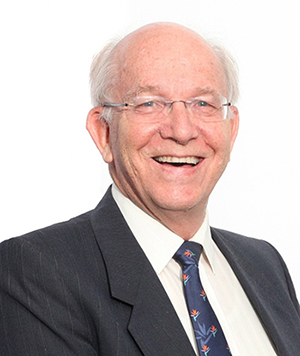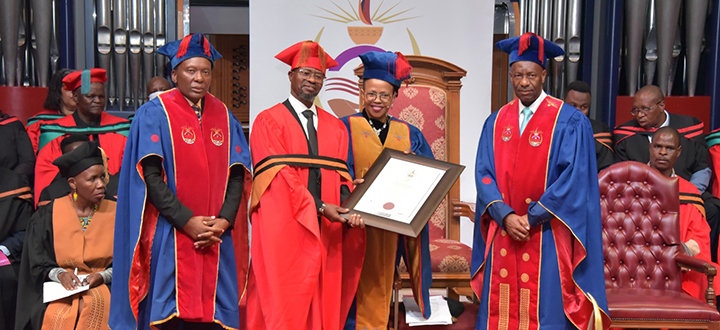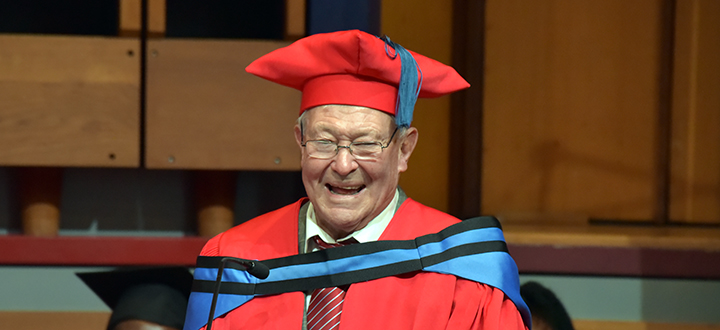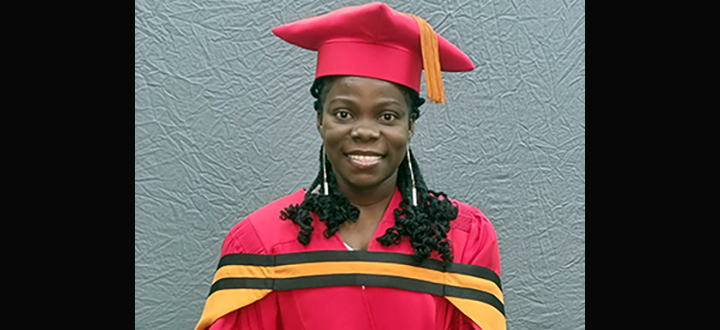News & Media
Plant scientist's significant contributions to African medicine

Prof Jacobus (Kobus) N Eloff
At 81, Prof Jacobus (Kobus) N Eloff continues to receive recognition for making an impact on the field of medicinal plant research. He is Professor Extraordinaire at Unisa and the founder and leader of the phytomedicine programme at the University of Pretoria. He is committed to working on plants with a commercial potential relating to microbial and parasitic infections in production animals.
Eloff studies the use of plants to address infections by microorganisms and infestations via parasites on humans, animals and plants. "The development of resistance against antibiotics and pesticides is a world-wide problem. We could show that in several cases that a plant extract had higher activity than a commercial product, for example, in healing human skin infections, protecting poultry against a dangerous fungus, protecting plants against fungal infections and many other applications," he explains.
"We have discovered a new framework compound with excellent antifungal and antiparasitic activity and high animal safety. This could lead to a new class of antifungal and antiparasitic compounds. The results have been patented in Europe and the USA as we continue with the work. We are now working on the use of a magic mushroom for depression in humans," says Eloff, a National Research Foundation (NRF) B-rated researcher, whose work has an international footprint.
His career started 56 years ago and is backed by research outputs, grants, patents and numerous awards. The plant professor says it took knowledge and research experience in different disciplines to be sustainable in academia. "I could identify gaps in the field of medicinal plant research." He adds: "Three single-author papers I wrote on methods in medicinal plant research when I entered the field have been cited 2 131, 1 298 and 273 times to date."
Among the awards Eloff received along the years, the International Horticultural Society Bronze medal, the SA Association of Botanists Silver, Gold medal and honorary Life Membership, and the SA Akademie vir Wetenskap en Kuns Havenga medal still stand out in his academic career. This year he was nominated for the 2019-2020 NSTF-South32 Awards Lifetime Award for his outstanding research work in science, engineering, technology and innovation in South Africa.
"I was fortunate in that my later research was in an interdisciplinary area," says Eloff. His first qualification was in Organic Chemistry (MSc), followed by an Honours degree in Botany (including Microbiology), and an MSc and DSc in Plant Biochemistry. All his qualifications were completed at Potchefstroom University between 1959 and 1967.
Through the phytomedicine programme, which is a multidisciplinary and collaborative research programme established in 1995, Eloff dedicates his time to explore therapeutically useful compounds present in plants growing in South Africa. The programme has delivered many publications and MSc and PhD graduates from many countries in Africa and Europe, as well as several patents and two products in the market.
In addition, Eloff says many top students from different countries want to join the group. However, they could select outstanding PhD students and excellent postdoctoral fellows from South Africa. The important part was that he managed to train students from previously disadvantaged backgrounds. "I like what I am doing. It is fantastic to see a student from a disadvantaged background excel and receive a PhD and then to meet their postgraduate students at national and international congresses. Our work is acknowledged from so many different sides."
Eloff also expressed how the relationship with Unisa brought blessings in his work. He has supervised and co-supervised PhD students and written several papers under the university’s address. "I have been tremendously blessed by the large number of outstanding students and postdoctoral fellows from all over Africa in our group. All the awards I received were based on their work."
* By Lesego Ravhudzulo, Journalist, Department of Institutional Advancement
Publish date: 2020-06-04 00:00:00.0

 Seven Unisans nominated for the NSTF-South32 Awards 2023/2024
Seven Unisans nominated for the NSTF-South32 Awards 2023/2024
 Unisa awards posthumous honorary doctorate to literary maven, OK Matsepe
Unisa awards posthumous honorary doctorate to literary maven, OK Matsepe
 From humble beginnings to academic leadership
From humble beginnings to academic leadership
 Community champion and agricultural entrepreneur extraordinaire honoured by Unisa
Community champion and agricultural entrepreneur extraordinaire honoured by Unisa
 Ghanaian-born Swede earns PhD in Information Sciences from Unisa
Ghanaian-born Swede earns PhD in Information Sciences from Unisa